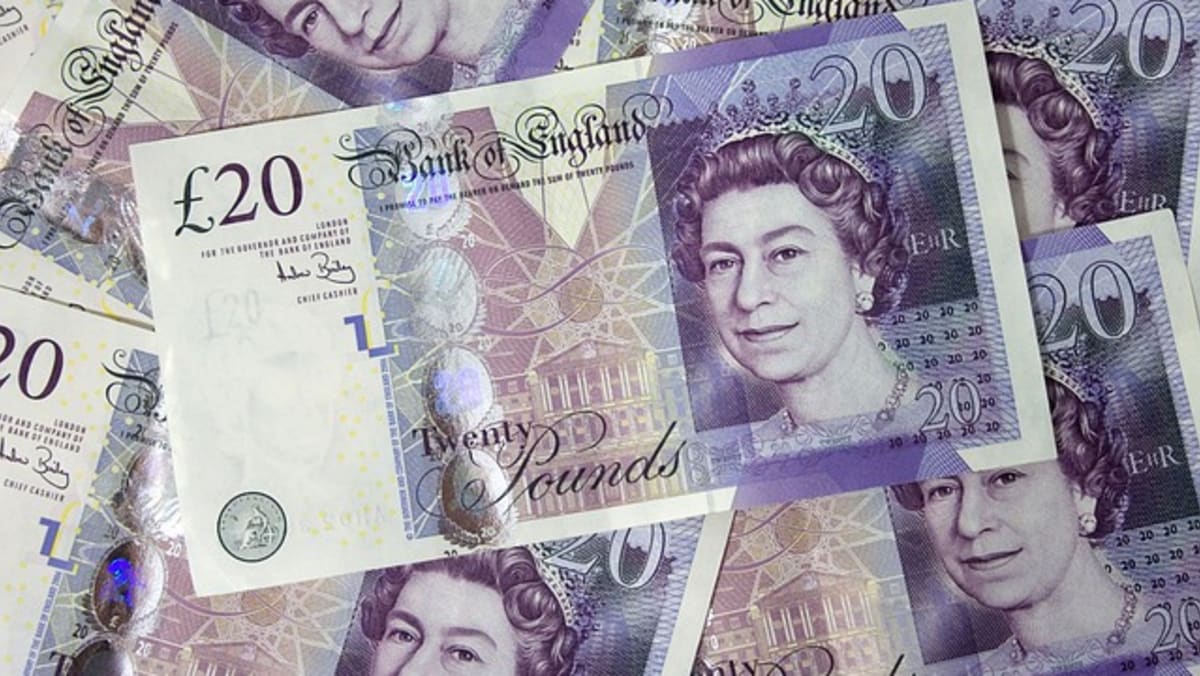
SINGAPORE — The British pound sank to an all-time low of US$1.0327 on Monday (Sept 27), prompting jokes amongst some Singaporeans on social media that this might be a good time to import high-end goods from the United Kingdom.
The sterling has slumped 5 per cent since Thursday and 21 per cent this year against a backdrop of an ever stronger US dollar. It has since bounced back to US$1.0683 at the start of the trading day on Tuesday.
The last time the value of the pound was anywhere near US$1.05 was in February 1985.
So how did the British pound, which was trading close to S$2 against the Singapore dollar just over a year ago, fall so steeply to around S$1.50 on Monday?
TODAY takes a closer look.
WHAT LED TO THE POUND’S POUNDING?
In short, economists told TODAY that it is mainly a result of the market reacting to the new fiscal policies implemented under recently-installed Prime Minister Liz Truss.
Investors began dumping the pound last Friday after Chancellor of the Exchequer Kwasi Kwarteng, the UK's chief finance minister, set out plans to slash taxes and big energy subsidies, among other things, in a bid to kickstart the ailing British economy. The government plans to fund this by borrowing money.
Mr Kwarteng then pledged over the weekend to cut taxes further in the new year, which only served to heighten fears of inflation rising again given that Britons will have more money to spend.
CIMB Private Bank economist Song Seng Wun described this move as a “populist” one since it would, in theory, mean that British citizens would pay less taxes, have lower utility bills, and ultimately, more money in their pocket.
“It sounds sensible, if you have the funds to be able to support that spending and the loss in government revenue,” he said.
But because the British government lacks the funds to do so, Ms Selena Ling, head of treasury and research at OCBC bank, said the plan would require substantial funding through increases gilt issuance, a form of borrowing.
Gilts are used by the UK government to raise money, usually to cover shortfall between public spending and income from taxes.
British daily The Guardian, quoting analysts on Friday, reported that investors were “no longer willing to fund the UK’s external deficit position at the current configuration”, which consequently led to the sell-off.
WHAT DOES IT MEAN FOR SINGAPORE?
OCBC’s Ms Ling said that for Singapore, businesses which import goods and services from the UK may benefit from the cheaper pound.
“Ditto for Singaporeans who are travelling to the UK, buying property, or sending their children to study there,” she added.
https://news.google.com/__i/rss/rd/articles/CBMiWGh0dHBzOi8vd3d3LnRvZGF5b25saW5lLmNvbS9zaW5nYXBvcmUvZXhwbGFpbmVyLXBvdW5kLXNsdW1wLWNoZWFwLXRyYXZlbC1pbXBvcnRzLTIwMDQzMjbSAQA?oc=5
2022-09-27 12:42:00Z
1578005664
Tidak ada komentar:
Posting Komentar